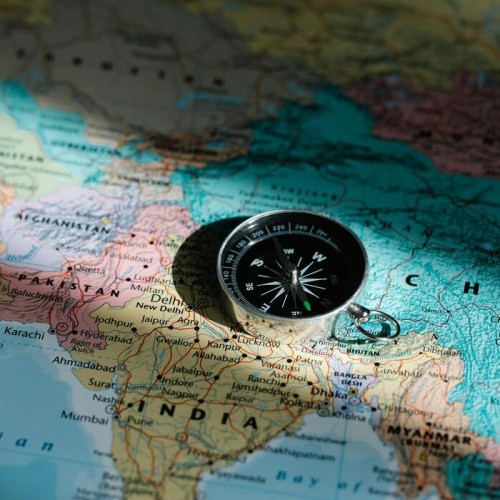Optimizing Multilingual SEO: Turning Local Links into Worldwide Traffic
How to optimize multilingual SEO by combining localized content and strategic link-building. It highlights the crucial role of a professional translation agency and certified translation services in creating authentic connections, improving search rankings, and turning local backlinks into global traffic.
In today’s global digital marketplace, businesses no longer operate within a single language or region. Whether you run an e-commerce store, a SaaS company, or a content platform, your audience is likely spread across different countries and cultures. To reach them effectively, you need more than just standard SEO, you need multilingual SEO that integrates both language and cultural nuances.
But content alone isn’t enough. The real power lies in combining localized content with strong link-building strategies that connect with regional audiences. This is where the role of a trusted translation agency and access to certified translation services becomes essential.
Why Multilingual SEO is the Future
Traditional SEO focuses on keywords, backlinks, and content optimization in one language. Multilingual SEO goes further, adapting these elements for multiple languages and regions. Here’s why it matters:
-
Expands Your Reach: Your brand can tap into entirely new audiences worldwide.
-
Improves Search Rankings Globally: Search engines prioritize localized, relevant content.
-
Builds Trust with Diverse Audiences: Speaking in your customer’s language creates immediate credibility.
-
Maximizes ROI on Content: Multilingual content lets you repurpose existing assets for new markets.
To make the most of multilingual SEO, you need a strategic approach that blends content localization, keyword research in multiple languages, and regional link-building.
The Secret to Global Traffic
Link-building is a cornerstone of SEO, and in multilingual campaigns, local links carry immense weight. Search engines value backlinks from region-specific domains because they signal relevance to that audience. When scaled correctly, local links become the bridge between your brand and worldwide traffic.
What Makes a Link “Local”?
-
It comes from a website in your target region or country.
-
It’s written in the local language.
-
It connects contextually to culturally relevant content.
When you secure links from trusted local websites, you tell search engines that your content matters to that audience. This is the first step to turning regional visibility into global reach.
The Role of Translation Agencies in SEO
A strong multilingual SEO campaign requires more than just automated translations. A reputable translation agency ensures that every piece of content, from blogs to landing pages, is adapted with cultural nuance and SEO in mind.
Professional agencies go beyond word-for-word translation. They:
-
Research localized keywords for each market.
-
Adapt tone and style to cultural expectations.
-
Ensure that your content aligns with local search intent.
This linguistic precision is also crucial for link-building. When outreach emails, guest posts, and anchor text are written naturally in the local language, they are far more likely to be accepted and generate high-quality backlinks.
Why Certified Translation Services Matter
While general translation is suitable for blog posts or marketing copy, there are times when accuracy is legally or professionally critical. This is where certified translation services come in.
For multilingual SEO, certified translations are especially important for:
-
Legal Pages: Privacy policies, terms of service, and compliance documents.
-
Business Registration and Credentials: Proving legitimacy to partners or directories in new markets.
-
Industry-Specific Content: Medical, technical, or financial content that requires verified accuracy.
By integrating certified translations into your multilingual SEO workflow, you not only maintain compliance but also build trust with search engines and users alike.
Steps to Optimize Multilingual SEO with Local Links
1. Conduct Multilingual Keyword Research
Each market has unique search terms, even for the same product. Use local keyword tools to find terms with high search volume and low competition.
2. Create Culturally Relevant Content
Work with a translation agency to ensure your content isn’t just translated but localized. Adjust references, idioms, and tone to resonate with each audience.
3. Build Relationships with Local Websites
Identify influencers, bloggers, and industry sites in your target markets. Offer guest posts or partnerships with content adapted using certified translation services to maintain credibility.
4. Optimize Technical SEO
Use hreflang tags to tell search engines which language version of a page to show. Create separate URLs for each language or region.
5. Track Regional Performance
Use analytics tools to monitor organic traffic, backlinks, and rankings per region. This data helps refine both your content and link-building strategy.
Turning Local Links into Global Traffic
Consider a SaaS company expanding from the U.S. into Europe and Latin America. By partnering with a translation agency, they localized their website into Spanish, French, and German. Simultaneously, they built backlinks from local tech blogs, using guest content verified by certified translation services.
Within six months:
-
Organic traffic from new regions grew by 120%.
-
Their domain authority increased due to diverse, high-quality backlinks.
-
Conversion rates improved because localized content created trust and relevance.
This illustrates how multilingual SEO combined with local link-building can transform visibility and engagement across borders.
Common Pitfalls to Avoid
-
Relying on Machine Translation Alone: It creates awkward phrasing that harms credibility and SEO.
-
Using the Same Link-Building Strategy Everywhere: Outreach and content must be tailored to each culture and language.
-
Neglecting Certified Translations: Especially for legal or technical content, lack of certification can lead to compliance issues.
-
Forgetting the User Experience: Language is more than words; navigation, images, and design should also feel local.
Combining Language and Links for Global Impact
Multilingual SEO isn’t just about speaking multiple languages, it’s about creating a truly global presence. By blending cultural understanding, localized content, and a smart link-building strategy, you can turn local backlinks into worldwide traffic.
A strong translation agency becomes a strategic partner in this process, ensuring every piece of content is accurate, engaging, and SEO-ready. Meanwhile, certified translation services safeguard your reputation and compliance as you expand into new markets.
Optimizing multilingual SEO is no longer a luxury, it’s a necessity for businesses that want to compete on a global scale. Local links drive search engine trust in each market, while professional language services ensure your brand message resonates authentically.
With the right blend of localized content, cultural sensitivity, and strategic backlinks, your business can transform regional efforts into a worldwide audience. Partnering with a skilled translation agency and leveraging certified translation services makes this transition seamless, positioning your brand for sustainable global growth.
Last posts

Scaling Content Across Borders: Strategies for Global Link Building
How to expand your brand internationally through effective content scaling and global link building strategies. It highlights the importance of localization, cultural adaptation, and professional translation services to create authentic connections and SEO impact in multiple markets.
Read more
The Importance of Link Building in 2025: Why Buying Links Matters More Than Ever
Learn more about importance of Link Building in 2025
Read more
SEMrush: Unleashing the Power of the Swiss Army Knife for SEO Success
SEMrush is the ultimate SEO tool, offering advanced keyword research, competitor analysis, and a suite of powerful features to help you outperform competitors, dominate search results, and maximize your online visibility.
Read more